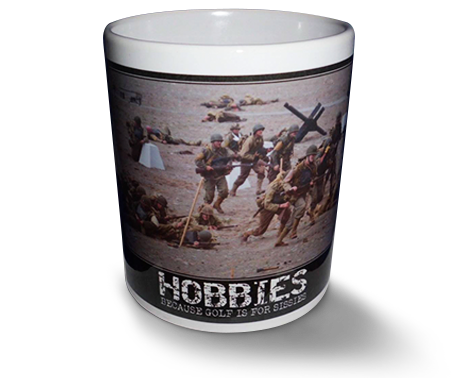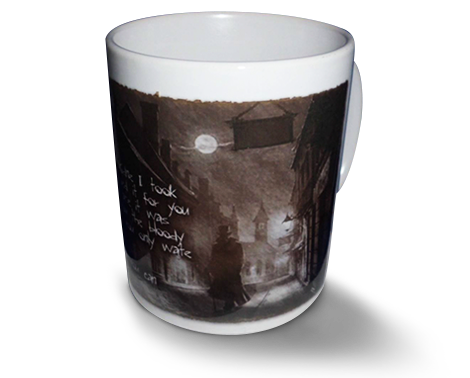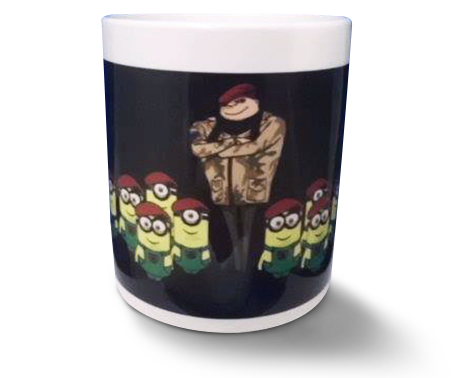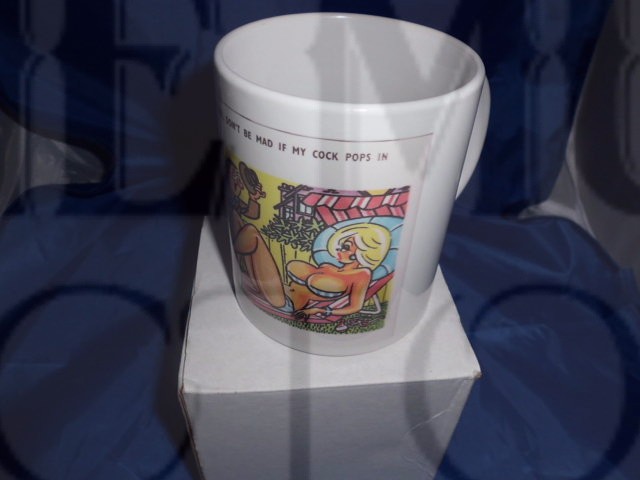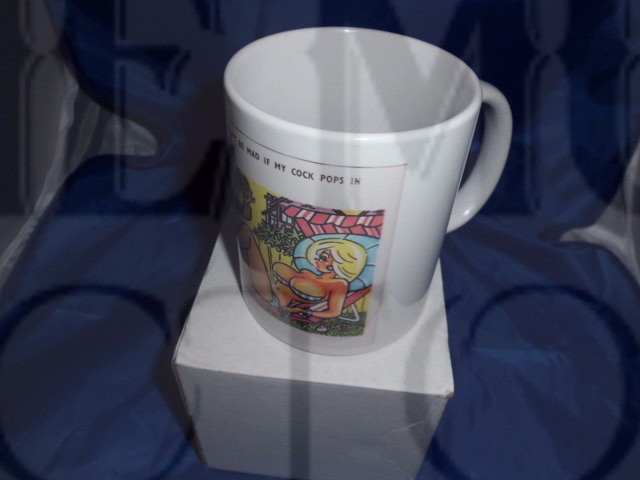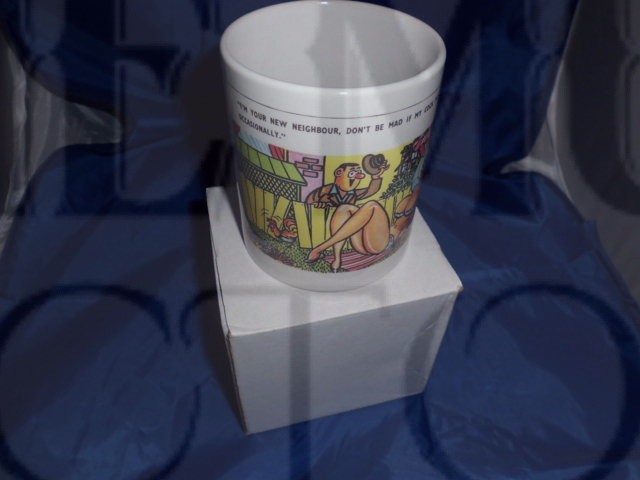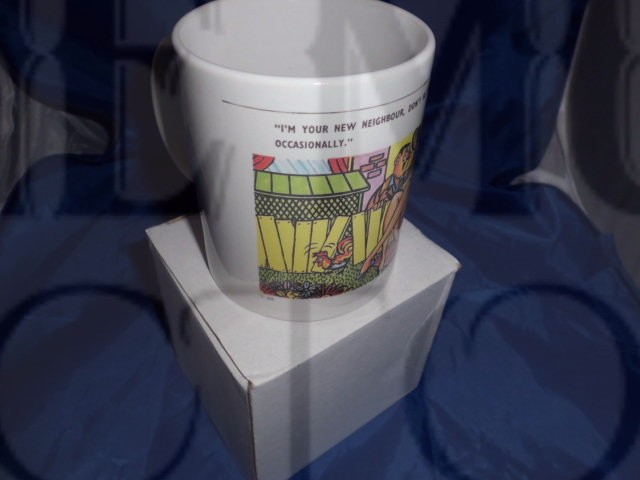1st Edition Saucy seaside postcard mug
1st Edition Saucy seaside card mug
11oz
Once saucy seaside postcards were once considered so risqué they were confiscated by police on the grounds of obscenity.
Thick with double-entendres, busty bathing belles, naughty vicars and henpecked husbands, the images may have been a hit with British holidaymakers who bought up to 16million of them every year during the 1950s.
But the Conservative government of the time took a different view and felt they were a source of moral corruption.
An exhibition displaying 1,300 titillating postcards, seized by police between 1951 to 1961, is being held by the British Cartoon Archive at the University of Kent. The display features cards that were seized by police in Margate, Kent.
It includes work by Donald McGill, a prolific postcard artist who in 1954 was found guilty of violating obscenity laws and made to pay a £50 fine plus £25 costs.
Prosecutions of the day were carried out under the Obscene Publications Act 1857.
Following a complaint, police would obtain a search warrant, raid the shop and seize offending stock.
After being presented to magistrates, the owners would be summoned to court and if the courts were persuaded that the postcards were obscene, they would be destroyed. To protect themselves, censorship committees were set up by shopkeepers in some resorts, including Hastings, Brighton and Blackpool, to ban the worst cards.
Tory campaign lasted for about a decade but fizzled out in the early 1960s when public attitudes to sex became more liberal and open. Nick Hiley, curator of the British Cartoon Archive, said: ‘What is interesting is that at the time the authorities thought they were a door opening into hell and a slippery slope to degradation.
‘But when you look at the postcards today, they look so innocent and people get nostalgic about them. They have quickly been redefined as art and something to celebrate and preserve.
‘These postcards were considered offensive 60 years ago, but far more risque material is now widely available via the internet.
‘Not only are many of the cards still amusing, but they represent a landmark in social and legal history.’
He added: ‘They are a vivid illustration of how our notion of obscenity has changed over time.’
The cards are among 35,000 cartoons digitised and made available free online by the British Cartoon Archive following a £150,000 grant.

